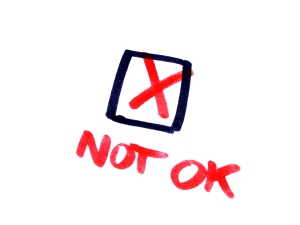 Last month the National Institutes of Health released results of a large national survey indicating that 6.5% of high school students report smoking marijuana daily. Moreover, nearly one out of four seniors report having smoked it in the past month, with only 39.5% of them viewing regular marijuana use as being harmful. These survey data match my clinical experience: more and more teens seem to be arguing that pot usage is harmless as states have begun to legalize it’s use. This blog entry is for parents who wish to have some counterarguments at the ready.
Last month the National Institutes of Health released results of a large national survey indicating that 6.5% of high school students report smoking marijuana daily. Moreover, nearly one out of four seniors report having smoked it in the past month, with only 39.5% of them viewing regular marijuana use as being harmful. These survey data match my clinical experience: more and more teens seem to be arguing that pot usage is harmless as states have begun to legalize it’s use. This blog entry is for parents who wish to have some counterarguments at the ready.
• No state that has legalized marijuana use for adults has done so for minors. Teens who smoke pot risk facing legal consequences in every state. For instance, in Pennsylvania, where I live, teens caught with marijuana are at risk to loose their driver’s license, among other consequences.
• What’s legal ≠ what’s healthy. It’s legal to eat a 24/7 diet of ice cream. No one in law enforcement will try to stop someone from doing that. However, does anyone believe that that’s advisable?
• What’s legal ≠ what’s moral. It’s legal for consenting adults to have sex with as  many of their neighbors as they’d like, regardless of marital status or other competing commitments. One doesn’t get arrested for that or for many other kinds of immoral activity.
many of their neighbors as they’d like, regardless of marital status or other competing commitments. One doesn’t get arrested for that or for many other kinds of immoral activity.
• To say that pot smoking is advisable for an otherwise healthy adult is a scientifically dubious claim. Concerns about an increase risk of lung cancer, drops in motivation and concentration and the development of other symptoms are each germane.
• Human brains continue to develop into early to mid twenties. And, the part of the brain that develops last is responsible for the most sophisticated and higher order brain functions. I know of no reputable scientist or clinician who would argue that it is advisable to introduce any psychoactive agent into a developing brain unless there is a compelling and well thought out need to treat a well diagnosed condition. Teen life is challenging and complex enough without adding such a wildcard.
• There is evidence that people with genetic predispositions to certain disorders can have them activated by significant marijuana abuse (e.g., schizophrenia).
 Readers of this blog, or my parenting book, know that monitoring is one of the most important resilience promoting activities that a parent can offer (e.g., entering the search term “monitor” in this blog or see Chapter Three of my book). In summation, we want to know: whom s/he is with, what they are doing and what responsible adult is in charge of making sure that the teens are safe, even if that is from a distance. In most instances, our firm and uncompromising stance is that sexual intercourse and substance use are not okay.
Readers of this blog, or my parenting book, know that monitoring is one of the most important resilience promoting activities that a parent can offer (e.g., entering the search term “monitor” in this blog or see Chapter Three of my book). In summation, we want to know: whom s/he is with, what they are doing and what responsible adult is in charge of making sure that the teens are safe, even if that is from a distance. In most instances, our firm and uncompromising stance is that sexual intercourse and substance use are not okay.
In my clinical experience synergy of one of two types is going on in most households where teens reside. The more resilience factors are in play the more that synergy is positive and the less the teen is pulled towards risky behaviors (e.g., there is positive one-on-one time each week between each parent and each teen, adaptive rituals are done regularly, a teen knows his or her areas of competence and has regular access to such, discipline is effective). The more resilience factors are not in play, the more the opposite is often the case.
Let me close with a bottom line regarding marijuana use among teens: parents  should not allow teens to smoke pot. (If you’d like a tight review of the relevant science, click here or here.) If your teen is putting up a significant fight along these lines, and maybe winning some of the battles, then I would highly recommend that you seek out the services of a qualified mental health professional. For a referral, click here.
should not allow teens to smoke pot. (If you’d like a tight review of the relevant science, click here or here.) If your teen is putting up a significant fight along these lines, and maybe winning some of the battles, then I would highly recommend that you seek out the services of a qualified mental health professional. For a referral, click here.

Comments
Reblogged this on 4:20 Smokers Blog.